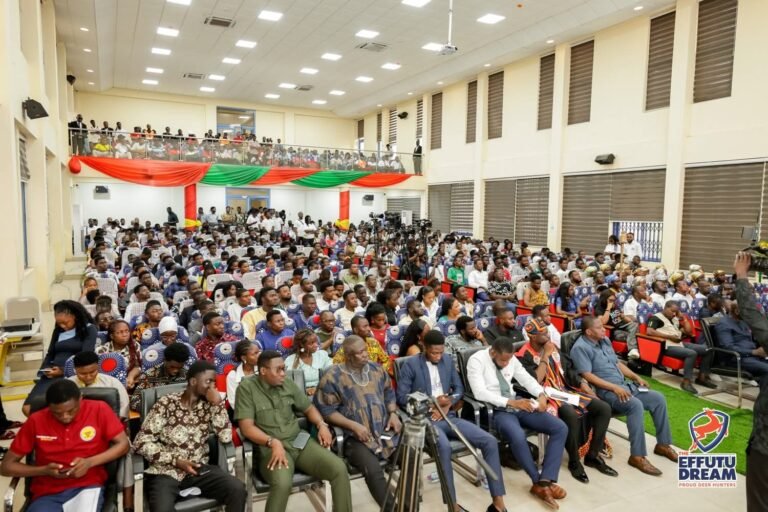
Studies have shown that issues of the economy (20.88%), jobs (19.28%) and education (17.2%) are the three topmost priorities of Ghanaians that would inform their voting choices. These are followed by issues such as petroleum prices (9.28%), healthcare (8.15%) and roads (8.06%).
This is according to a survey released yesterday by research group Global InfoAnalytics in its second national tracking poll.
The poll, which had a sample size of 5,120 from 68 constituencies, also disclosed that political party preference was the least concern of many Ghanaians (0.99%), coming below issues such as water and sanitation, security and taxes.
The recent finding is consistent with an August 2020 Afrobarometer report that disclosed that unemployment and education are the most important problems that young Ghanaians want government to address. When Afrobarometer asked adults of all ages to cite the most important problems they wanted the government to address, infrastructure/roads was the most frequently cited priority (mentioned by 59% of respondents), followed by unemployment (39%) and education (38%) However, unemployment and education were the most important problems that young Ghanaians (aged 18-35 years) wanted government to address.
Corruption not a big deal
Intriguingly, corruption, which until 2017 was a constant feature in most polls, did not form part of the top five priorities of Ghanaians. In the Global InfoAnalytics report, corruption came eighth, with just about three out of 100 Ghanaians (3.79) seeing that as a top priority.
The recent survey report is supported by the country’s two-point drop from 75th position out of 180 countries to 73rd position in the 2021 Corruption Perception Index (CPI), released by the Transparency International. It is further supported by Ghana’s consistent percentage increase in the CPI from 41 per cent inherited by the Akufo-Addo government in 2017 to the current point of 43 per cent
The results in recent surveys defeat claims by a section of the media and opposition elements that corruption under the Nana Addo Dankwa Akufo-Addo government has seen a rise.
Some analysts have attributed the country’s marginal success in corruption fight, evidenced by the surveys, to the investment and measures put in place by government to fight the menace.
Since the Akufo-Addo government took over in 2017, it has made some institutional reforms, enacted additional requisite laws, and resourced more adequately the accountability organs of state as a means of fighting corruption.
The government saw to the passage of the Right to Information Act, 2019 (Act 989), to foster a culture of transparency and accountability in public affairs, and also passed the Witness Protection Act, 2018 (Act 975); established a Witness Protection Agency to establish a witness protection scheme as a vehicle for offering protection to persons who are required to co-operate with law enforcement agencies as witnesses in the investigation and prosecution of cases, particularly corruption cases affecting public officers. The administration also saw to the passage of the Criminal Offences (Amendment) Act, 2020, (Act1034), to amend section 239 of the Criminal Offences Act 1960 (Act 29), to categorise the offence of corruption, previously a misdemeanor, as a felony, and to guarantee stiffer punishments of terms of imprisonment of not less than twelve (12) years and not more than twenty-five (25) years in prison.
Additional laws passed by the administration, which have enhanced significantly the capacity of the State in the fight against corruption, are the Revenue Administration (Amendment) Act, 2020 (Act 1029), Fiscal Responsibility Act, 2018 (Act 982), State Interests and Governance Authority Act, 2019 (Act 990), Anti-Money Laundering Act, 2020 (Act 1044), Corporate Restructuring and Insolvency Act, 2020 (Act 1015), Companies Act, 2019(Act992), Narcotics Control Commission Act, 2020 (Act 1019) and Real Estate Agency Act, 2020 (Act 1047).
In terms of financial support, the administration has increased budgetary allocations for institutions actively engaged in public sector accountability such as the Office of the Auditor-General, the Judiciary, Parliament and the Ghana Police Service.
At the end of 2021, budgetary allocation to Parliament had witnessed a 194% increase, compared to what was inherited in 2016; the Police had seen its budget increase by 162% at the end of 2021, in comparison to 2016; the Audit Service had recorded an 83% rise in its budgetary allocation at the end of 2021, as compared to 2016; the budget of the Judiciary had risen by 51% at the end of 2021, compared to 2016; the budget of the Office of the Attorney-General had increased by 50% at the end of 2021, compared to 2016; whilst the budget of CHRAJ had increased by 21% at the end of 2021, compared to 2016.




